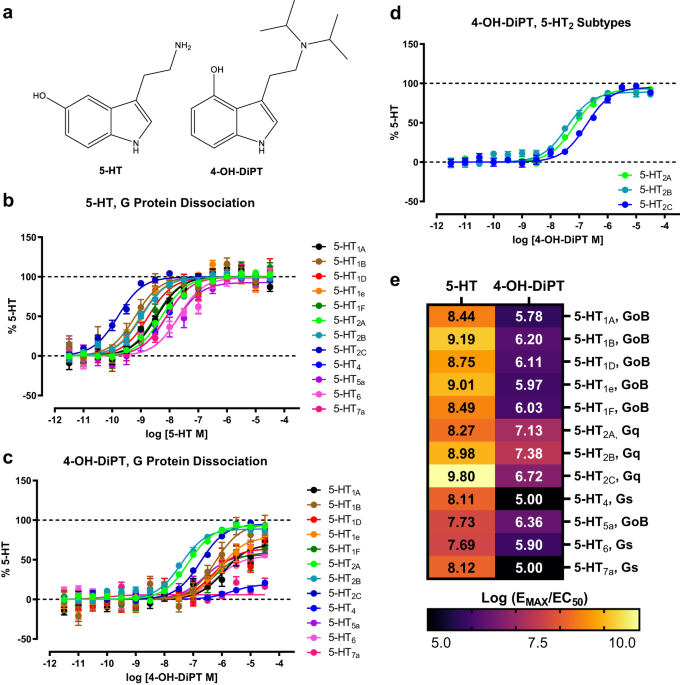6
Psilocybin analog 4-OH-DiPT enhances fear extinction and GABAergic inhibition of principal neurons in the basolateral amygdala - Neuropsychopharmacology
www.nature.comPsychedelics such as psilocybin show great promise for the treatment of depression and PTSD, but their long duration of action poses practical limitations for patient access. 4-OH-DiPT is a fast-acting and shorter-lasting derivative of psilocybin. Here we characterized the pharmacological profile of 4-OH-DiPT and examined its impact on fear extinction learning as well as a potential mechanism of action. First, we profiled 4-OH-DiPT at all 12 human 5-HT GPCRs. 4-OH-DiPT showed strongest agonist activity at all three 5-HT2A/2B/2C receptors with near full agonist activity at 5-HT2A. Notably, 4-OH-DiPT had comparable activity at mouse and human 5-HT2A/2B/2C receptors. In a fear extinction paradigm, 4-OH-DiPT significantly reduced freezing responses to conditioned cues in a dose-dependent manner with a greater potency in female mice than male mice. Female mice that received 4-OH-DiPT before extinction training had reduced avoidance behaviors several days later in the light dark box, elevated plus maze and novelty-suppressed feeding test compared to controls, while male mice did not show significant differences. 4-OH-DiPT produced robust increases in spontaneous inhibitory postsynaptic currents (sIPSCs) in basolateral amygdala (BLA) principal neurons and action potential firing in BLA interneurons in a 5-HT2A-dependent manner. RNAscope demonstrates that Htr2a mRNA is expressed predominantly in BLA GABA interneurons, Htr2c mRNA is expressed in both GABA interneurons and principal neurons, while Htr2b mRNA is absent in the BLA. Our findings suggest that 4-OH-DiPT activates BLA interneurons via the 5-HT2A receptor to enhance GABAergic inhibition of BLA principal neurons, which provides a potential mechanism for suppressing learned fear.
You must log in or register to comment.

